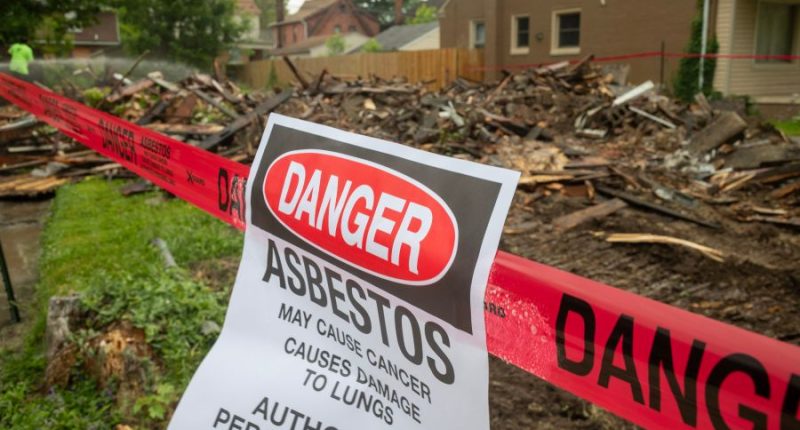Share this @internewscast.com

The Environmental Protection Agency (EPA) announced it will reevaluate the Biden administration’s decision to prohibit the final form of asbestos still utilized in the U.S., as communicated to a federal appeals court this week.
The agency aims to assess if the ban exceeded required measures. In a recent legal document, the EPA indicated plans to review the previous administration’s regulation over the next 30 months.
Now with asbestos back in the spotlight, what is it? How can exposure to it happen? What effects can it have on a person’s health?
What is asbestos?
Asbestos is a natural mineral that is resistant to heat and corrosion.
It has six types: Chrysotile, crocidolite, tremolite, amosite, anthophyllite and actinolite.
Asbestos, a mineral associated with numerous health risks, is responsible for tens of thousands of deaths each year and is known to cause mesothelioma along with other cancers. Its usage has been largely discontinued in the country.
How can someone be exposed to asbestos?
People can be exposed to asbestos mainly if they are part of the automotive or construction industry.
The mineral is widely used in insulation, automotive parts like brake pads, and building materials like roof and floor tiles.
Asbestos fibers can get into the air when something disturbs their natural deposits in soil, rock, or older products.
Consumer products — appliances, cosmetics, textiles, and toys — also contained asbestos. People have also been exposed to asbestos in occupational settings, public buildings, and homes.
The effects of asbestos can be deadly
People exposed to asbestos are at risk of serious or fatal health ramifications.
Being subject to the mineral can lead to people developing lung cancer, mesothelioma, asbestosis and pleural disease. Along with lung cancer and mesothelioma, asbestos exposure can also cause cancer of the larynx and ovary.
Asbestos can’t be removed from the lungs after exposure, and there are no treatments.
After exposure, people are recommended to have regular medical exams, get regular vaccinations against the flu and pneumococcal pneumonia, quit smoking, or avoid further asbestos exposure.










